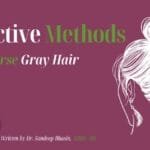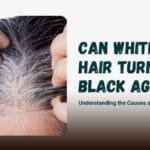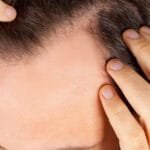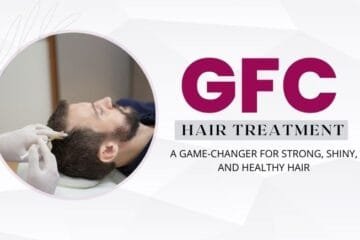Overview
There are plentiful books, studies, and abstracts brimmed up with natural remedies as cures for hair loss problems. Natural remedies for some prove to be quite advantageous and there are people who have largely benefited from natural remedies for hair loss problems.
For people suffering from acute hair loss problems, different kinds of alopecia, and hair fall, we have collected the most effective and best natural remedies from the store of ancient Ayurveda to help them deal with the problem efficiently.
Check out the 7 best natural remedies for hair loss problems and ways to use them
Onion Juice
Onion juice is a great store and source of sulfur and hair needs a good amount of sulfur for the nourishment of hair follicles. Sulfur is considered to stimulate collagen production in the tissues and helps in the boosting of hair growth.
You may also use onion to protect your hair from damage, falling out, and graying. Here is how you can use onion for treating hair loss and stimulating hair re-growth.
Peel off the onion skin and cut it into pieces, put the onion pieces either into a juicer or grate them to squash out the juice. Make sure to separate the pulp and juice as the pulp will tangle in your hair and can cause a few extra hairs to fall off for no reason.
Short Summary
Apply the juice gently onto your scalp, rub it for 5 minutes until it’s dry, and keep it on for 1 hour or overnight as per your suitability. Wash it off with a mild shampoo. Repeat the procedure at least twice a week. You may see notable results in a few months.
Fenugreek
It is also known as methi seeds in Hindi and is regarded as highly efficient in treating hair loss. In older times, Fenugreek seeds were extensively used for hair conditioning, eliminating dandruff, and stopping hair fall.
The seeds contain hormone antecedents that trigger hair growth and support in restructuring of hair follicles.
Fenugreek seeds also contain proteins and nicotinic acid in them that fuel hair growth. How you can use Fenugreek seeds for hair loss- Immerse 2 tablespoons of fenugreek seeds in water overnight.
Short Summary
In the morning, grind them to make a thick consistency paste, apply the paste directly to your hair and cover with a shower cap. Let it remain on your head for 1-2 hours and then rinse your hair with warm water.
Aloe Vera
Not a NEW-NEW herb, but of late is gaining huge popularity due to its healing properties for hair and skin. Aloe Vera comprises enzymes that directly replenish hair follicles and promote healthy hair growth.
Using fresh Aloe Vera regularly will reduce thinning, improve hair loss and rejuvenate follicles for new growth. Aloe enzymes moisturize the scalp, and hair strands by shedding off the dead skin from the head.
Short Summary
It is a great herb that helps stabilize the scalp’s PH and prevent breakouts, which can potentially promote hair growth. You can also use Aloe Vera to relieve scalp inflammation, itching, and redness.
Indian Gooseberry, AKA Amla
Again the usefulness of Amla for hair is not new and is possibly one of the best solutions for anyone suffering from hair fall. Amla is widely popular in Ayurveda to prevent hair fall and promote hair growth.
Amla is loaded with vitamin C, vitamins like Iron, Calcium, Phosphorus, Vitamin B Complex, Carotene, and minerals which are excellent to keep your hair strong, strengthen the hair follicles, fuel hair growth, and keep them shining. Natural hair medicine can be used both topically and orally.
Short Summary
Massage Amla paste mixed with Triphala and lemon juice onto your scalp and leave it to dry. Rinse with lukewarm water and shampoo is not necessary as it is a cleanser itself plus lemon eliminates the need for shampoo.
Curry Leaves/Guava leaves and Coconut Oil
Curry leaves are one of the amazingly helpful herbs that boost hair growth and also prevent pre-mature graying of hairs. Coconut oil, I believe needs no introduction about its benefits for hair growth since it is a known fact.
Coconut oil prevents moisture and boosts circulation and it possesses bacterial properties that are wonderful for the hair. The fatty acids present in coconut oil connect with hair proteins and nourishes the hair strands from root to tip and prevent breakage. It’s better to use virgin coconut oil for hair.
Short Summary
The easily accessible herb when mixed with coconut oil can work amazingly to boost healthy hair growth. Boil a handful of curry leaves and coconut oil in a pan and when it leaves a black residue, switch off the flame and strain the oil for use.
Egg Mask
An egg mask is packed with proteins and is one of the most workable home remedies for damaged hair. With high levels of proteins, phosphorus, iodine, iron, zinc, and sulfur, it is the most effective hair mask you can apply for thick hair growth.
The Healing properties of the egg whites may replenish and restore the quality and texture of the hair.
Short Summary
Crack up 2 eggs or according to your hair density or length, remove the yolk and apply the egg white mask to your hair.
Garlic
This popular kitchen ingredient is known for its various health benefits. It is considered to be a rapid hair growth booster home remedy. Garlic is used to control hair fall control and treat scalp infections.
It contains selenium and sulfur that works well to strengthen the structure of the hair, meaning that it not only contributes to renewing lost hair but can also reinforce existing hair.
Short Summary
The minerals and vitamins that each clove of garlic is immersed with can condition the hair while adding strength.
Conclusion
Here I would like to make an important note that- there is no guarantee or surety that your baldness or hair loss will be treated completely in natural ways as there is no evidence of its favorable results.
People around the world are using natural means to treat hair loss, of which some have been able to successfully get over the dreadful problem while some are still struggling hard. It literally depends from person to person about the effectiveness of a particular natural product.
However, there are no severe side effects associated with natural remedies to cure hair loss. Plus it takes a long time to show noticeable results as compared to other medical treatments.














